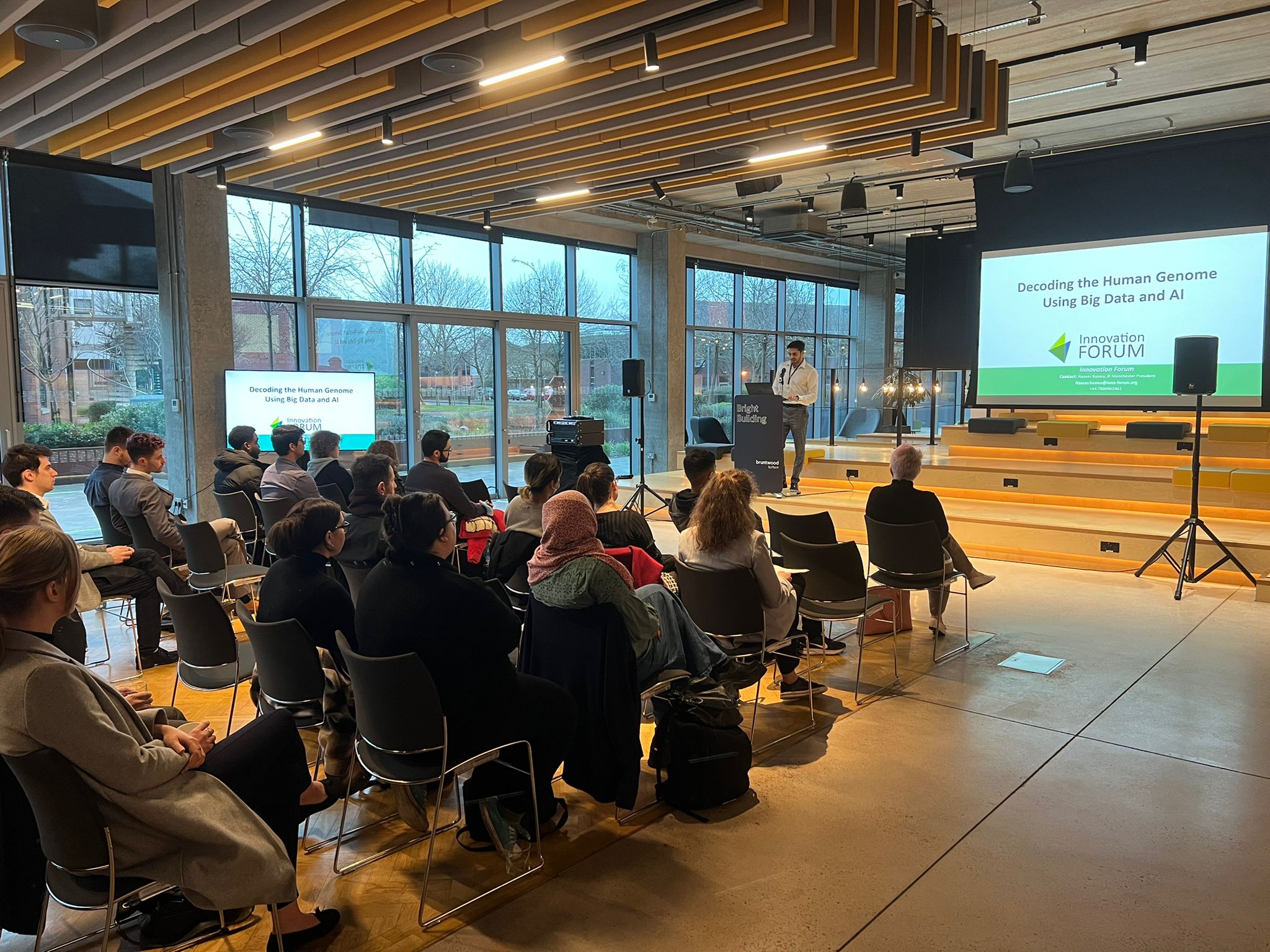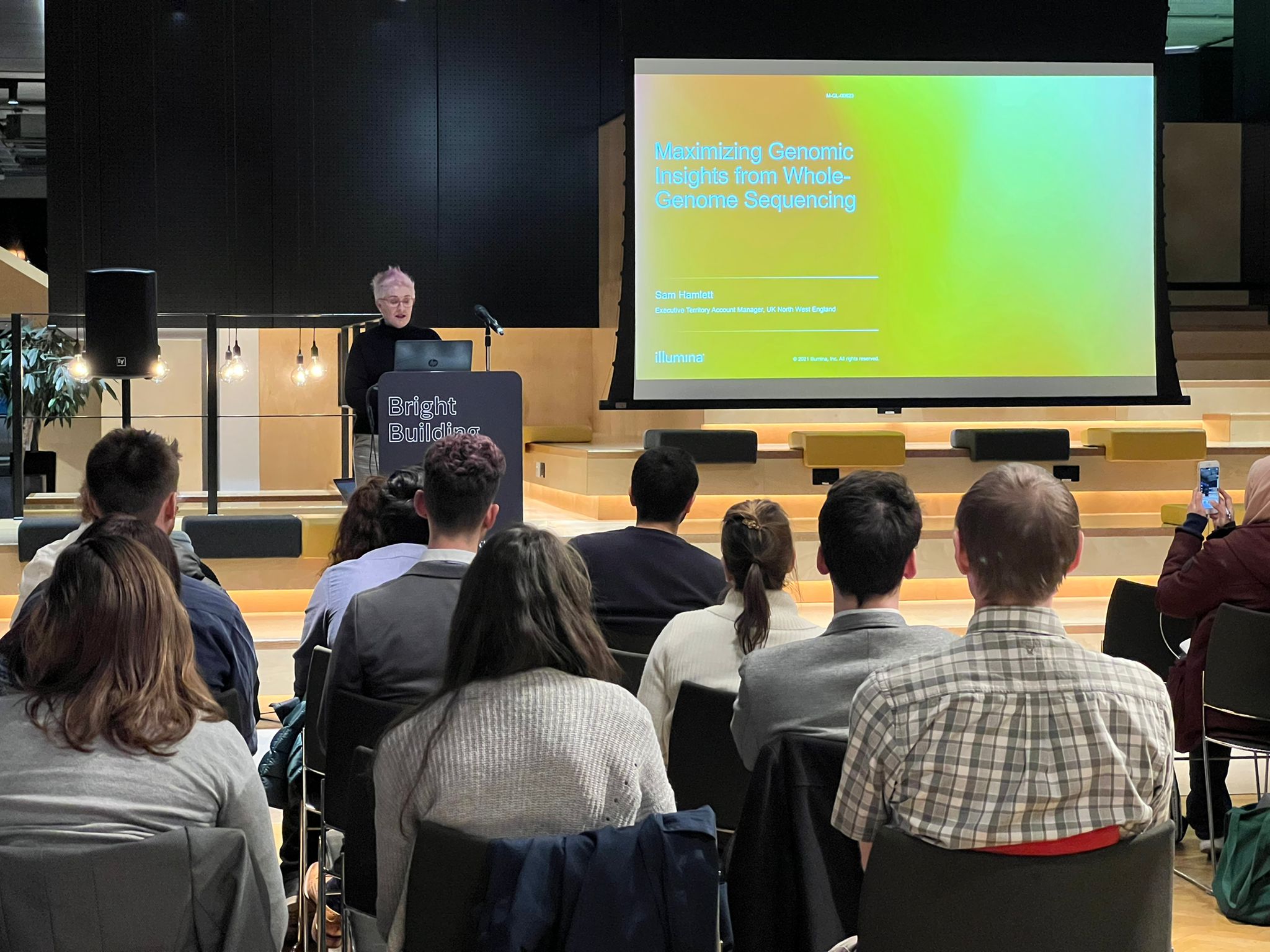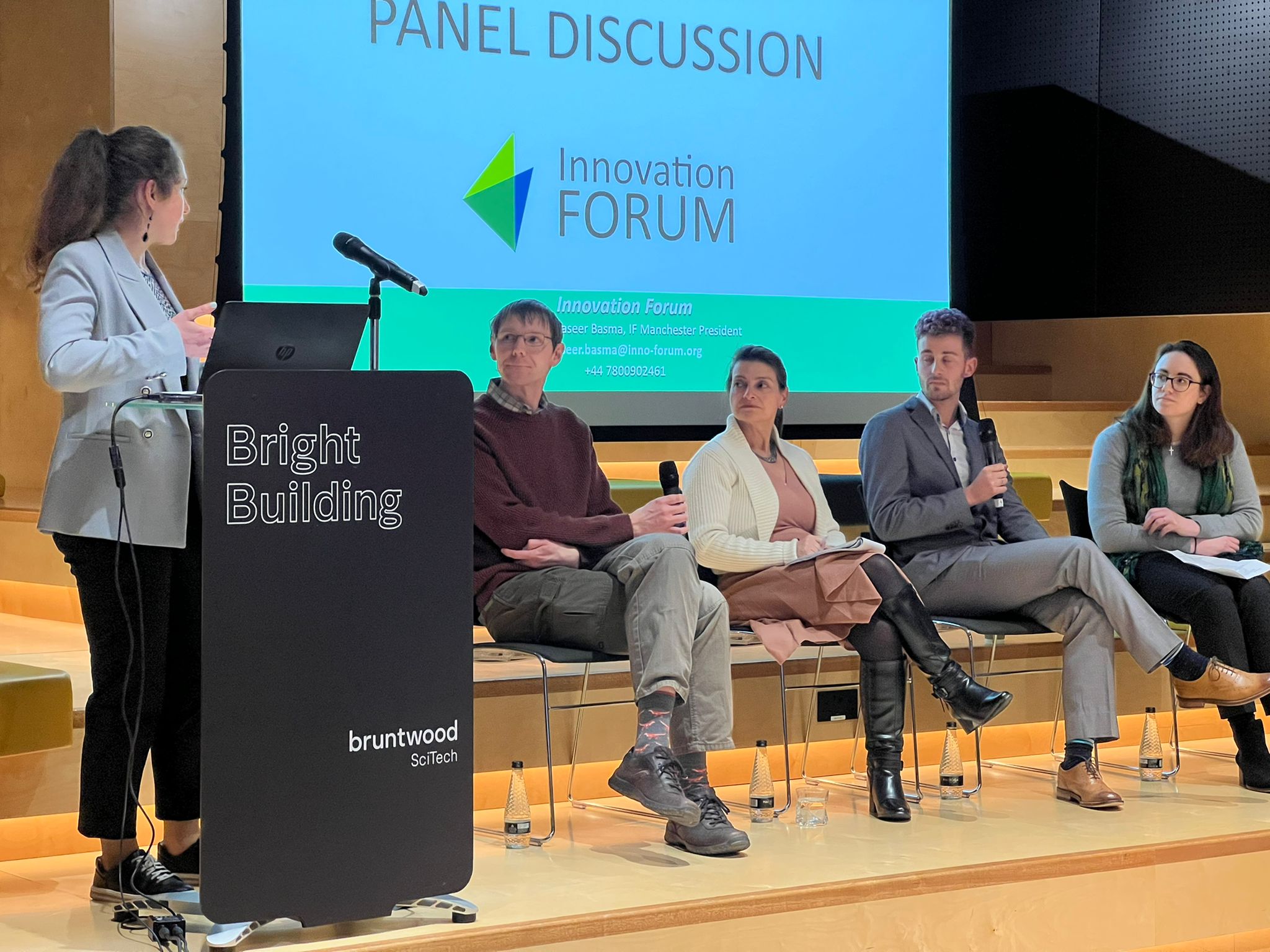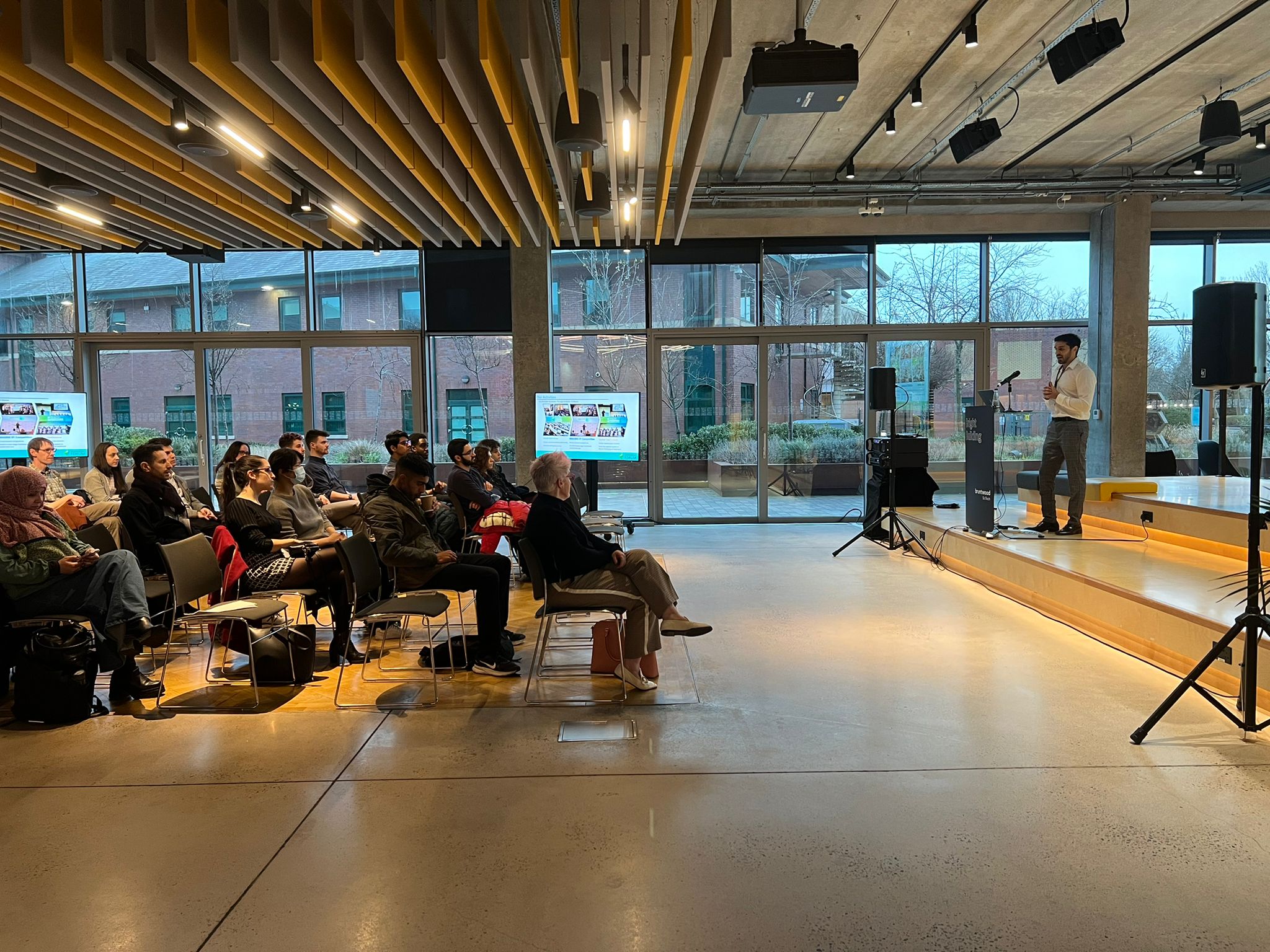Branch
Select your branch
Big Data and AI in Genomics in Focus: Event Recap
The rise of the digital era over the last half century has coincided with incredible breakthroughs in the field of genomics research. As we enter the 2020s, the convergence of these two worlds is coming to the fore.
On the 15th of March 2022, researchers, entrepreneurs, students, and genomics enthusiasts had the opportunity to explore these exciting developments at Innovation Forum’s “Decoding the Human Genome Using Big Data and AI”. Over 40 attendees gathered at Manchester Science Park’s Bright Building, hosted by Bruntwood Scitech, and a further 35 people tuned in virtually to hear from industry experts and renowned academics both locally and nationally, about the challenges the field faces and the promise it holds in transforming healthcare.

Our first speaker, Juhi Gupta, provided a breakdown of what “-omics research” represents, how the fields have evolved over the last few decades, and where they are heading. Juhi introduced the audience to the Christabel Pankhurst Institute. This Institute is an initiative led by the University of Manchester and the NHS that aims to support the translation of heath technology research and Innovation into healthcare practice. Here, Juhi leads the “Multi-omic Technologies for Healthcare” division. She was able to discuss the steps in the current pipeline that will facilitate the application of multi-omics technologies in the clinic. These steps are as follows:
- Scientists/Biologists/Researchers collect the multi-omics data (Big Data)
- Analysis of “multi-omics” data by Analysts/Statisticians/ data scientists
- Validation of findings (e.g. replication cohort)
- Translation of “multi-omics” findings into a technology that be applied in clinical practice
The current goal of this research unit is to bridge the gap between the first 3 steps and the last. Check out Juhi’s talk here.

A current roadblock in achieving these objectives is an inability to decipher the sequencing data at the same pace as its generation. Our next speaker, Sam Hamlett from Illumina discussed the latest analysis tools offered by the company that promises to assist in overcoming this challenge.
Illumina is a prominent player in the genomics field and has played a big part in progressing it by reducing the cost of sequencing from $1 million to less than $1000. Sam explained the latest software analysis tool offered by Illumina, called DRAGEN. The DRAGEN platform provides comprehensive analysis of next generation sequencing data using machine learning and AI principles.
Finally, To round up the keynote speakers, Danuta Jeziorska from Nucleome Therapeutics described how her company has leveraged some of these breakthroughs in genomics technologies to investigate the dark genome. Danuta talked about the opportunities that lie in exploring the non-coding genome, which holds more than 95% of disease-linked genetic variants, for drug discovery and development.
Nucleome Therapeutics is an example of real-world commercial application of genomics research and represents both the great strides that have been made in genomics, and the innovative drive that lies at the heart of this field.

The next segment allowed the audience to engage with a panel of field experts. This includes academic experts (Simon Pearce and Cathine Felton from Cancer Research UK Manchester) and industry professionals (Agustin Guardiola and Markella Mikkelson from Apis Assay Technologies and MolMart diagnostic Genomics, respectively). The panel members shared insights into a host of thought-provoking genomics-based questions. This facilitated a rich discussion on the future of the field. Much of this discussion is available to view here.
The Innovation Forum is proud to have provided this platform to openly explore big data and AI in genomics. We would like to thank all participants, including the speakers, panellists, and the audience.
We would like to give special thanks for Bruntood Scitech, who hosted the event in the fantastic Bright Building and aided in running the event.

Are you interested in joining our future events? Would you like to showcase your business or become a member of our friendly team?
Get in touch through one of our various social media platforms:






